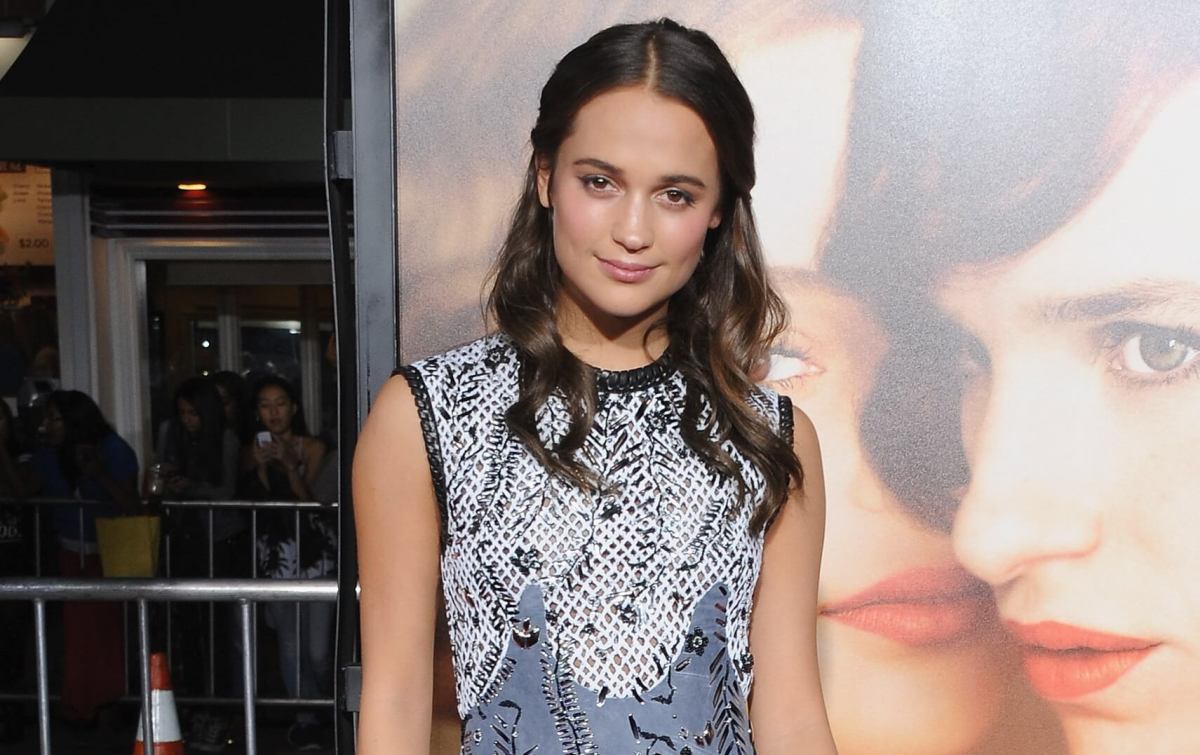Before she read the script, Alicia Vikander says she wasn’t aware “The Danish Girl” had a strong second female role. It’s the tale of Lili Elbe (played by Eddie Redmayne), one of the first people, in the 1920s, to transition from male to female. A life change that also meant parting ways with Gerda, her wife played by Vikander. The “Ex Machina” actress says — speaking to us while making the next “Bourne” film — the film explores both a transgender pioneer and what her transition did to her relationship with Gerda, who had to find strength to let her go. You do a lot of period films, from “A Royal Affair” to “Anna Karenina” to “Testament of Youth.” Do you sometimes feel lost going from one era to another?
I get stuck in them. Sometimes I don’t know what century I’m in. But it’s a great skill to have as an actor, to have sets and costumes already there. It does a lot for you to be able to throw yourself into a new story and immediately get a sense of the world you’re in when you get there. RELATED: Eddie Redmayne on what he learned from the transgender community for “The Danish Girl” “The Danish Girl” does bring you back to portraying Scandinavian culture.
It’s part of my history and my life growing up. During “A Royal Affair,” I loved being back in the 18th century. I was able to find personal connections to Caroline Mathilde [her character], and it gave me a lot to being someone’s voice from such a long time ago. With “Testament of Youth” I was able to find people who knew Vera Brittain. With “The Danish Girl” we tried to find historical inspirations, but it was also about meeting people, who had such generosity, in the transgender community, especially people like my character who had been friends or loved ones of people transitioning. What kinds of things did you learn from people who had been close to people transitioning?
Every single story ends up being extremely different. Sometimes they said it was tough to give them that time. They said they were also transitioning. Like any couple going through a huge change, they both needed to find their feet on the ground in a new location. That’s something I could relate to with whatever you’re going through as everything’s changing around. RELATED: Alicia Vikander talks about making a quiet sci-fi film with “Ex Machina” I’d argue this is also a great break-up film, and one that isn’t about a couple who split bitterly. It’s about their struggles to maintain a connection despite parting ways.
Love includes being able to let that person go, the person you love the most. You still have affection for someone, even when things get bad. It was a unique story, but I was amazed by the romantic aspect, and the love between them. Of course they go off on different roads, but they go on the same journey. There are scenes where they both know that things are hard, but they don’t know what the future’s going to be. They know that and they’re still able to reach out and tell the other person they’re connected somehow. That’s something I felt from page one to the end, that they do have a connection. Even though their relationship changes, that’s something they’ll always have, it will always be there. That got to me. There are a lot of emotional scenes, but those are the ones, where they try to reach out and connect, when I started to cry reading it. And that very rarely happens. Follow Matt Prigge on Twitter @mattprigge
Alicia Vikander on the part of ‘The Danish Girl’ that made her cry

Getty Images


















